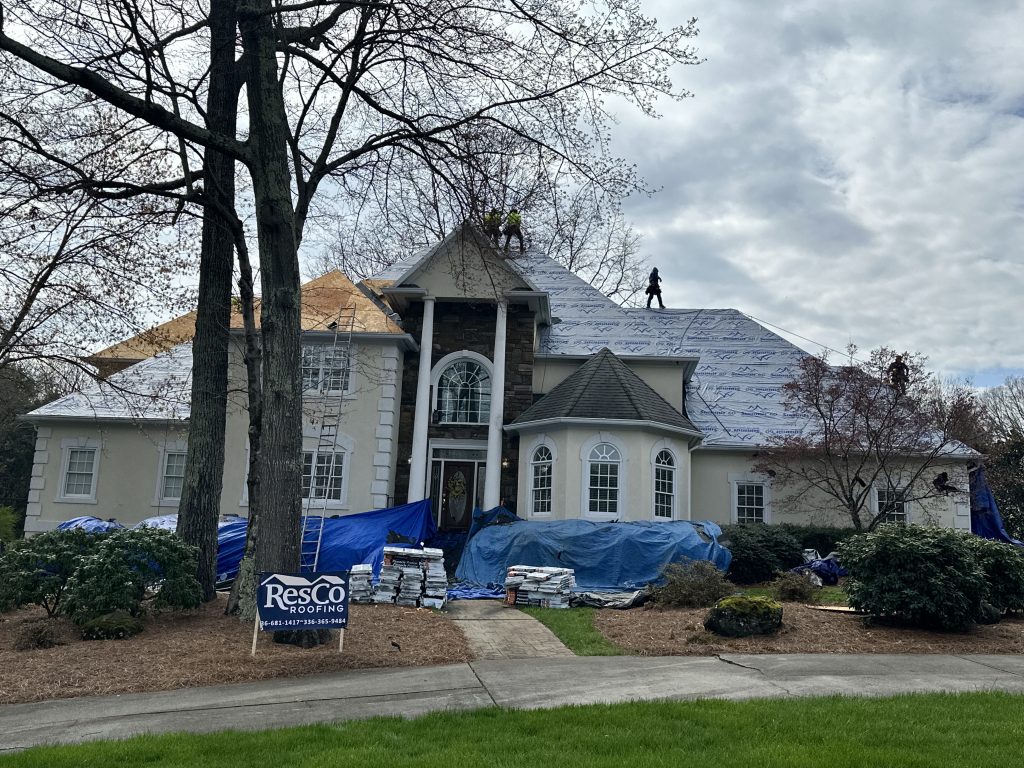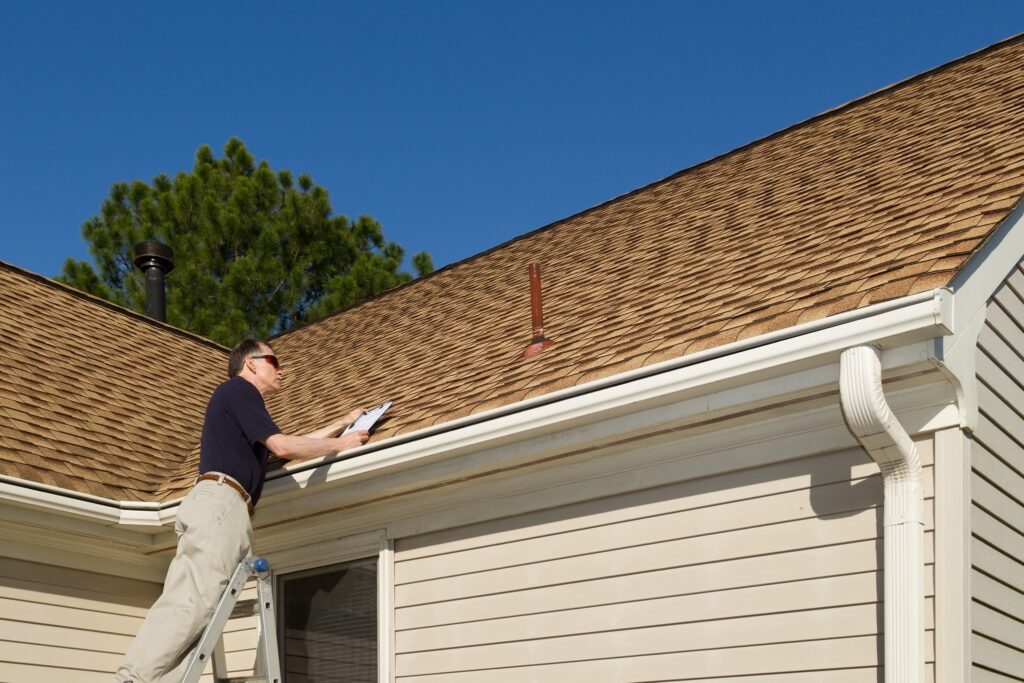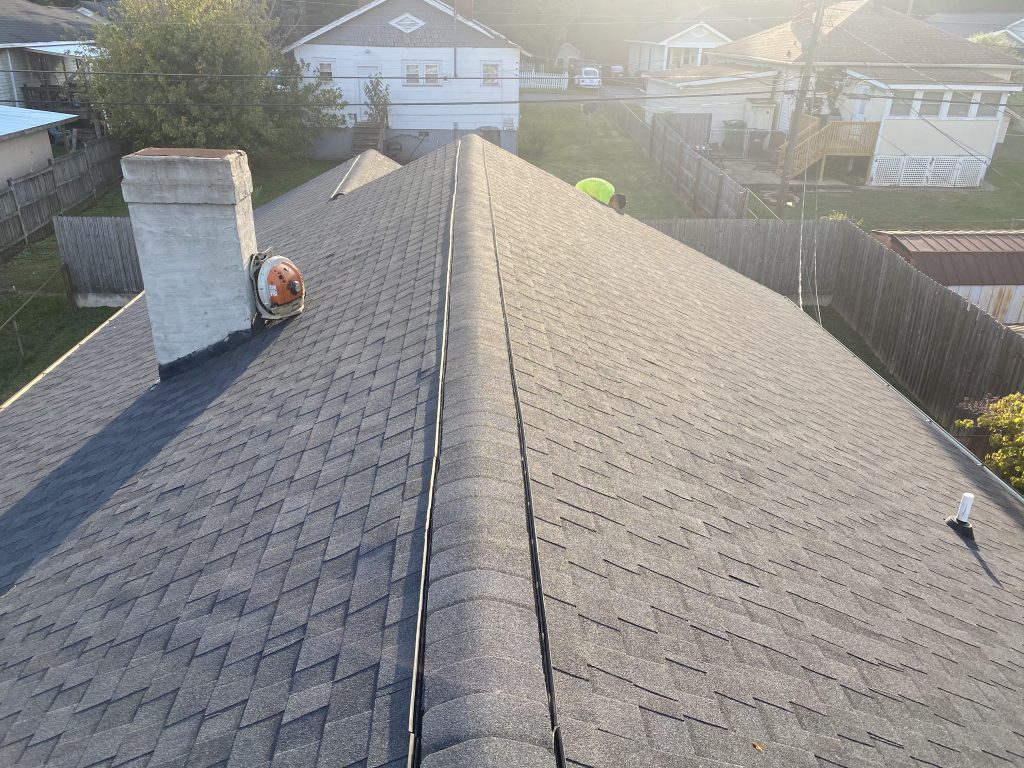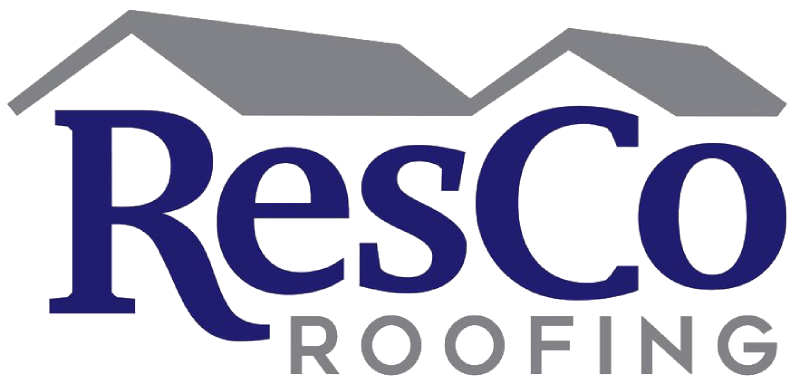Expert Roofing Services Around the Corner: Find Roofers Near Me
When it comes to safeguarding your home, the roof over your head is a critical component. From weatherproofing to enhancing the structural integrity and aesthetic appeal of your property, proper roofing is not just an investment in your home’s future—it’s an investment in your peace of mind. If you’re in the market for roofing services, understanding the local roofer landscape is key to finding professionals who are not only skilled but also easily accessible. In this comprehensive guide, we’ll walk you through the process of finding expert roofers near me, ensuring that every shingle is laid with care and precision.
Benefits of Professional Roofing Services
Engaging professional roofing services provides a multitude of advantages that go beyond the surface. Firstly, the expertise and experience of certified roofers ensure that every aspect of the project, whether it’s installations, repairs, or maintenance, is meticulously carried out to the highest standards. This attention to detail significantly reduces the likelihood of any future issues cropping up, giving you long-term peace of mind.
Moreover, specialists in the roofing industry have access to top-notch materials at wholesale rates, ensuring that your roof not only looks great but also stands the test of time against the elements. This durability and longevity outshine what DIY enthusiasts or less experienced contractors can offer. Additionally, opting for professional services often comes with warranties that safeguard your investment, assuring homeowners that their roof is protected in the event of any unforeseen circumstances.
When it comes to safety, professional roofing teams prioritize the well-being of both their workers and your property. Equipped with the latest tools and adhering to strict safety protocols, these seasoned professionals minimize the risk of accidents during the project.
Furthermore, by investing in professional roofing services, you’re not just enhancing the functionality of your roof but also increasing the overall value and curb appeal of your property. Should you ever decide to put your home on the market, a well-maintained roof installed by experts can be a major selling point that attracts potential buyers.

Factors to Consider When Choosing a Roofer
Choosing the right roofer is pivotal to ensuring your roofing project’s success. However, with numerous contractors vying for your attention, deciding who to trust can be daunting. Here are several key factors to keep in mind:
- Licensing and Insurance: Make sure any roofer you consider is licensed and insured. This not only validates their legitimacy but also protects you from liability in the event of accidents or damage during the project.
- Experience: Experience matters in the roofing industry. Look for a contractor with a proven track record of delivering high-quality work on projects similar to yours.
- Local Reputation: Opting for a local roofer not only supports the community but also gives you a chance to assess their work firsthand and gather feedback from neighbors or friends who have used their services.
- Warranty Offers: Inquire about warranty options. A reputable roofer should offer a warranty on both materials and workmanship, ensuring your investment is protected.
- Quote Transparency: A reliable roofer will provide a detailed quote, breaking down the costs associated with your project. This transparency helps avoid unexpected expenses and allows for better budgeting.
- Communication Skills: Effective communication is crucial throughout any construction project. Choose a roofer who is responsive, listens to your needs, and keeps you updated on the progress of your project.
By carefully considering these factors, you can confidently select a roofing professional who will meet and exceed your expectations, ensuring that your roof is in capable hands.
Importance of Local Roofers
Choosing local roofers for your roofing project carries significant advantages that extend beyond mere convenience. By selecting professionals who are familiar with your community, you’re investing in someone who understands local building codes and weather patterns intimately. This knowledge ensures that your roofing is not only compliant with regulations but also optimized for the specific challenges posed by your area’s climate, providing a more durable and efficient solution for your home.
Furthermore, local roofers have a vested interest in maintaining a good reputation within the community, which means they are more likely to provide high-quality service and support. In the unlikely event of any issues arising post-completion, having a local roofer ensures that follow-up or warranty work can be addressed promptly, without the hassle or delays often experienced with non-local contractors.
In essence, choosing a local roofer is not just a matter of convenience or community support; it’s a strategic decision that can affect the longevity, efficiency, and overall success of your roofing project.
How to Find Roofers Near You
Discovering reputable roofers in your vicinity is simpler than you might think. Here are effective strategies to help you locate skilled roofing professionals nearby:
- Ask for Recommendations: One of the most reliable methods is to ask friends, family, or neighbors for referrals. Personal recommendations come with firsthand accounts of work quality and customer service, providing a trustworthy starting point.
- Use Online Directories: Websites like Angie’s List, HomeAdvisor, or the Better Business Bureau offer listings of professional roofers. These platforms often include customer online reviews and ratings, making it easier to gauge the reliability and quality of service.
- Check Social Media and Online Forums: Social media platforms and local forums can be goldmines for finding roofing contractors. Look for community groups or roofing-related discussions where members share experiences and recommend local services.
- Visit Local Hardware Stores: Local hardware stores or building supply outlets frequently have bulletin boards or lists of local contractors. Because these stores often supply materials to contractors, the staff might also have recommendations.
- Attend Home Shows: Local home improvement shows or expos are excellent venues to meet roofing contractors face-to-face, gather information, and even get preliminary quotes on potential projects.
After compiling a list of potential roofers, remember to conduct thorough research, check for proper licensing and insurance, compare quotes, and follow up on references before making your final decision. This approach will help you find a reliable roofer who can meet your project’s specific needs while providing quality service and support.

Questions to Ask Potential Roofers
When interacting with potential roofers, it’s crucial to ask pointed questions to assess their suitability for your project. Here’s a comprehensive list of questions to guide your conversation:
- Can you provide proof of licensing and insurance? – Ensuring your roofer is properly licensed and insured protects you from potential liabilities.
- What is your experience with roofing projects similar to mine? – This helps gauge their expertise and familiarity with projects of your scope and style.
- Can you provide a list of references? – Contacting past clients can give you insights into the roofer’s work quality and professionalism.
- What warranties do you offer on your work and the materials used? – Understanding warranty specifics can safeguard your investment.
- Who will be on-site overseeing the project? – Knowing who is responsible on days of work ensures accountability.
- How do you approach project timelines and potential delays? – This question will help you understand how your project fits into their schedule and their flexibility.
- Can you provide a detailed quote and contract? – A detailed quote allows you to see where your money is going and what the contract covers.
Armed with these questions, you’ll be in a strong position to evaluate potential roofers and make an informed decision that aligns with your needs and expectations for your roofing project.
Red Flags to Look for When Hiring a Roofer
While navigating the process of hiring a roofer, it’s imperative to be vigilant and recognize potential red flags that could indicate a less-than-reputable contractor. Key warning signs include:
- Lack of Proper Licensing and Insurance: A reputable roofer should readily provide evidence of both licensing and insurance. An absence or unwillingness to show these documents is a significant red flag.
- Excessively Low Bids: While it’s tempting to opt for the cheapest option, unusually low bids may reflect subpar materials, inadequate workmanship, or hidden costs.
- Pressure to Sign Contracts Quickly: High-pressure tactics aimed at getting you to sign a contract immediately should raise concerns. A reputable contractor will allow you time to review the contract details and make a well-informed decision.
- Requesting Large Upfront Payments: It’s standard for contractors to request a deposit, but if a roofer is asking for a large portion of the payment upfront, it may indicate financial instability or a scam.
- Lack of Local References or a Permanent Business Location: Reliable roofers usually have a strong presence in the community with verifiable local references and a well-established business location.
- Poor Communication: Difficulty getting in touch with the contractor, unclear answers, or a lack of professionalism in communications can indicate potential problems with project management and execution.
Being aware of these red flags will help you steer clear of problematic contractors and ensure that your roofing project is in trustworthy and competent hands.
Tips for Working with Roofing Contractors
Working with roofing contractors effectively requires clear communication and understanding from both parties. Here are some key tips to ensure a smooth and successful collaboration:
- Establish Clear Communication: Right from the start, establish how and when you will communicate with your contractor. Whether it’s daily updates via email, phone calls, or in-person meetings, having a predefined communication method helps keep both parties informed.
- Understand the Scope of Work: Make sure you have a detailed understanding of what the project entails. Discuss the materials, timelines, and the sequence of work to set realistic expectations.
- Set a Payment Schedule: Agree on a payment schedule that aligns with project milestones. This approach ensures that payments are made for work completed, reducing risks for both parties.
- Keep a Project Journal: Keep a daily log of the project’s progress, including work completed, materials delivered, and conversations had. This can be invaluable in resolving any disputes and tracking progress.
- Inspect the Work Regularly: While it’s important to trust your contractor, personally inspecting the work done at various stages can ensure that the project meets your expectations and adheres to the agreed-upon standards.
- Prepare for Inevitable Noise and Disruption: Roofing projects can be noisy and disruptive. Plan accordingly, and communicate with your neighbors about the expected timeline and noise levels.
- Final Walk-through and Approval: Before making the final payment, do a final walk-through with the contractor to ensure that all aspects of the project are completed satisfactorily and according to the contract.
By following these tips, you’ll create a foundation for a positive and productive working relationship with your roofing contractor, leading to a successful project completion.

Understanding Roofing Costs and Estimates
Deciphering the costs and estimates for a roofing project is pivotal for homeowners to plan and budget effectively. Roofing costs can vary widely, influenced by factors such as the size and shape of the roof, the materials chosen, labor costs in your area, and the complexity of the job. To ensure a fair and accurate estimate, it’s essential to understand the components that contribute to the overall cost:
- Materials: The choice of roofing materials has a significant impact on the overall cost. Standard asphalt shingles are generally the most cost-effective, whereas materials like metal, tile, or slate tend to be more expensive but offer longer lifespans and distinct aesthetic appeal.
- Labor: Labor costs can fluctuate based on the experience and reputation of the contractor, the complexity of the installation, and regional wage variations. Remember, skilled labor might cost more upfront but can save money in the long run through efficiency and quality workmanship.
- Removal of Old Roofing: The cost to remove and dispose of the existing roofing material can add to the total project cost. This aspect should be discussed and included in the initial estimate.
- Size and Complexity of the Roof: The overall size of the roof and any complexities such as steep slopes, skylights, or chimneys can increase the time required to complete the project, affecting labor costs and material needs.
- Permits and Inspections: Depending on your location, roofing projects may require permits and inspections, which contribute to the project cost. Your contractor should be able to include these fees in your estimate.
It’s important to obtain detailed estimates from several roofing contractors to compare costs and understand exactly what is included. Do not hesitate to ask questions if any part of the estimate seems unclear. By comprehensively reviewing and understanding roofing estimates, you can ensure that you are getting a fair price and that the work will meet your expectations.
In conclusion, hiring the right roofing contractor for your project is crucial, and understanding the process and costs associated with a roofing project can make all the difference. By being informed and vigilant, you can protect yourself from potential scams or poor workmanship and ensure that your home’s roof will provide lasting protection for years to come. Remember to always do your research, follow best practices when working with contractors, and make informed decisions to achieve the best results.
https://www.google.com/maps?cid=6129032492384724290
